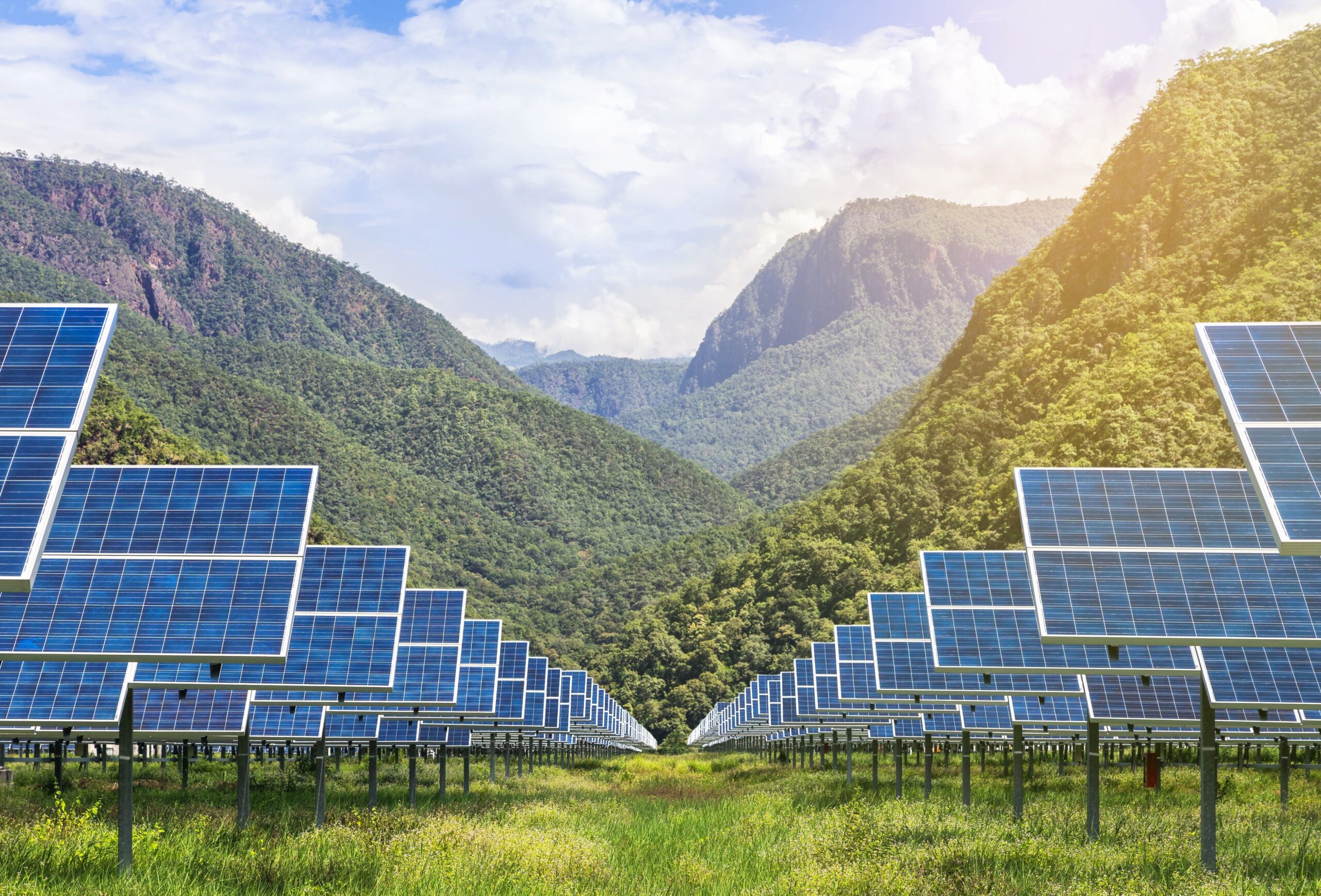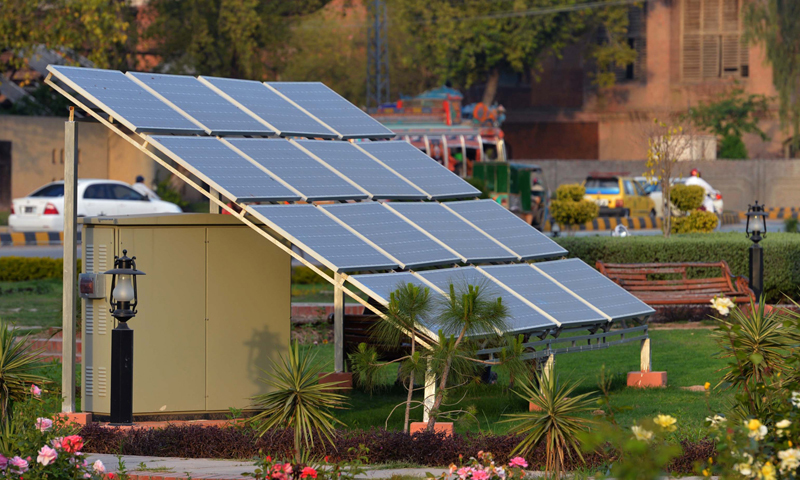
Islamabad, the capital city of Pakistan, is known for its scenic beauty, modern infrastructure, and growing focus on sustainable development. With increasing electricity costs and frequent power outages, many residents and businesses in Islamabad are turning to solar energy as a reliable and eco-friendly solution. Installing a solar system in Islamabad is not only a practical choice but also a step towards energy independence and environmental conservation.
This comprehensive guide will walk you through the complete process of solar system installation in Islamabad, providing detailed and engaging content to help you understand every step involved. Whether you’re a homeowner, business owner, or simply curious about solar energy, this article will equip you with the knowledge to make informed decisions.
Why Install a Solar System in Islamabad?

Before diving into the installation process, it’s essential to understand why solar energy is a gamechanger for Islamabad:
1. Frequent Load Shedding: Islamabad, like many other cities in Pakistan, faces regular power outages. Solar systems provide a reliable backup during these times.
2. High Electricity Costs: Solar energy can significantly reduce your electricity bills, offering long term savings.
3. Abundant Sunlight: Islamabad enjoys ample sunlight throughout the year, making it an ideal location for solar energy generation.
4. Environmental Benefits: Solar power reduces reliance on fossil fuels, lowering carbon emissions and contributing to a cleaner environment.
5. Government Incentives: The Pakistani government offers net metering policies and tax incentives to encourage solar adoption.
Step 1: Assessing Your Energy Needs
The first step in installing a solar system is to evaluate your energy consumption. This will help determine the size and type of system you need.
How to Assess Your Energy Needs:
1. Review Your Electricity Bills: Analyze your past 12 months of electricity bills to understand your average monthly and annual energy usage.
2. Identify Peak Usage: Determine when your energy consumption is highest (e.g., during summer for air conditioning).
3. Future Energy Needs: Consider any changes in your energy usage, such as adding an electric vehicle or expanding your home.
Tools to Help:
Energy Audits: Professional energy audits can provide a detailed analysis of your energy consumption.
Online Calculators: Many solar companies in Islamabad offer online tools to estimate your energy needs and potential savings.
Step 2: Choosing the Right Solar System
There are several types of solar systems to choose from, depending on your needs and budget.
Types of Solar Systems:
1. On-Grid Systems: These systems are connected to the local utility grid. They allow you to use solar power during the day and draw from the grid at night. Excess energy can be fed back into the grid for credits under net metering.
2. OffGrid Systems: These systems are independent of the grid and rely on battery storage to provide power. They are ideal for areas with unreliable grid access.
3. Hybrid Systems: These combine on-grid and off-grid features, offering the flexibility of grid connection with the security of battery backup.
Components of a Solar System:
Solar Panels: Convert sunlight into electricity.
Inverters: Convert the direct current (DC) produced by the panels into alternating current (AC) used by your home.
Mounting Systems: Secure the panels to your roof or ground.
Batteries (for offgrid systems): Store excess energy for later use.
Monitoring Systems: Track the performance of your solar system.
Step 3: Site Assessment and Design
Once you’ve determined your energy needs and chosen the type of system, the next step is a site assessment and system design.
Site Assessment:
1. Roof Evaluation: Assess the condition, angle, and orientation of your roof. South Facing roofs with a 30 degree angle are ideal for solar panels.
2. Shading Analysis: Identify any obstructions (e.g., trees, chimneys) that could cast shadows on the panels and reduce efficiency.
3. Structural Integrity: Ensure your roof can support the weight of the solar panels.
System Design:
Panel Placement: Determine the optimal layout for maximum sunlight exposure.
Inverter Location: Choose a location close to the panels and your electrical panel.
Wiring and Conduit: Plan the routing of wires and conduits to minimize energy loss.
Step 4: Obtaining Permits and Approvals
Before installation can begin, you’ll need to obtain the necessary permits and approvals.
Common Permits and Approvals in Islamabad:
1. Building Permits: Required for structural changes to your property.
2. Electrical Permits: Ensure the installation meets local electrical codes.
3. Net Metering Approval: If you’re connecting to the grid, you’ll need approval from the Islamabad Electric Supply Company (IESCO) for net metering.
Working with Professionals:
Solar Installers: Reputable installers in Islamabad will handle the permitting process for you.
Local Authorities: Check with the Capital Development Authority (CDA) for specific requirements.
Step 5: Installation Process
With permits in hand, the installation process can begin. This is typically completed in a few days, depending on the size of the system.
Step-by-step Installation:
1. Mounting the Panels: Install the mounting system on your roof or ground.
2. Installing the Panels: Secure the solar panels to the mounts.
3. Wiring the System: Connect the panels to the inverter and electrical panel.
4. Installing the Inverter: Mount the inverter and connect it to the system.
5. Battery Installation (if applicable): Set up the battery storage system.
6. Final Connections: Connect the system to the grid or set up the OffGrid configuration.
Safety Considerations:
Professional Installation: Always hire certified professionals to ensure safety and compliance.
Inspections: The system will need to be inspected by local authorities before it can be activated.
Step 6: System Activation and Monitoring
Once the installation is complete and inspections are passed, your system can be activated.
Activation Process:
1. Utility Connection: For on-grid systems, IESCO will connect your system to the grid.
2. System Testing: The installer will test the system to ensure it’s functioning correctly.
3. Monitoring Setup: Install monitoring software to track your system’s performance.
Monitoring Your System:
Realtime Data: Monitor energy production and consumption in real time.
Alerts: Receive notifications for any issues or maintenance needs.
Performance Reports: Generate reports to track savings and efficiency.
Step 7: Maintenance and Upkeep
Solar systems are low maintenance, but regular upkeep is essential to ensure optimal performance.
Maintenance Tips:
1. Cleaning Panels: Clean the panels periodically to remove dirt, debris, and dust.
2. Inspecting Components: Check for any damage or wear to the panels, mounts, and wiring.
3. Monitoring Performance: Keep an eye on your system’s output to detect any issues early.
4. Professional Servicing: Schedule annual inspections with a professional to ensure everything is in working order.
Step 8: Maximizing Your Solar Investment
To get the most out of your solar system, consider these additional tips:
1. Energy Efficiency: Reduce your overall energy consumption by using energy efficient appliances and lighting.
2. Timeous Plans: If your utility offers time of use pricing, shift energy intensive tasks to off peak hours.
3. Battery Storage: Adding a battery can increase your energy independence and provide backup power during outages.
4. Solar Incentives: Take advantage of net metering and other incentives to reduce your upfront costs.
Solar System Installation Companies in Islamabad
Several reputable companies in Islamabad specialize in solar system installation. Here are a few to consider:
1. Reon Energy: A leading provider of solar solutions in Pakistan, offering customized systems for homes and businesses.
2. SkyElectric: Known for its hybrid solar systems and advanced monitoring technology.
3. Zorays Solar: Offers a range of solar products and services, including installation and maintenance.
4. Shams Power: Specializes in grid tied and off-grid solar systems for residential and commercial clients.
Conclusion: Embracing Solar Power in Islamabad
Installing a solar system in Islamabad is a smart and sustainable choice that offers numerous benefits, from reducing electricity bills to contributing to a cleaner environment. By following this comprehensive guide, you can navigate the installation process with confidence and make informed decisions every step of the way.
As Islamabad continues to grow and modernize, solar energy stands out as a reliable and accessible solution to the city’s energy challenges. By harnessing the power of the sun, you can take control of your energy needs, reduce your carbon footprint, and enjoy long term savings. So, take the first step today and join the growing community of solar energy adopters in Islamabad. The sun is shining, and the future is bright!